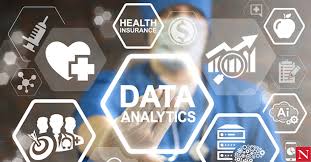Ph.D. in Biomedical Informatics: Introduction, Admission, Registration, Eligibility, Duration, Fees, Syllabus 2024

Introduction:
In the ever-evolving landscape of healthcare, the Ph.D. in Biomedical Informatics stands as a beacon of innovation and progress. This interdisciplinary field merges biomedical science, computer science, and information technology to revolutionize healthcare delivery, patient outcomes, and medical research. Students delve into the realms of data analytics, machine learning, and artificial intelligence to extract insights from complex healthcare data, paving the way for personalized medicine and evidence-based decision-making.
By bridging the gap between clinical practice and technological advancements, graduates of this program emerge as leaders equipped to tackle the most pressing challenges in healthcare. Whether it's optimizing electronic health records, developing novel diagnostic tools, or designing healthcare algorithms, Ph.D. holders in Biomedical Informatics are at the forefront of shaping the future of medicine.
Admission Process:
- Submit an online application form.
- Provide transcripts from previous academic institutions.
- Letters of recommendation from academic or professional references.
- Statement of purpose outlining research interests and career goals.
- GRE scores (if required).
- Interview with faculty members (may be required).
Eligibility:
- A master's degree in a related field (biomedical informatics, computer science, biology, etc.).
- Strong academic background in mathematics, statistics, and programming.
- Research experience in biomedical informatics or a related field is preferred.
Completion Time:
The completion time for a Ph.D. in Biomedical Informatics typically ranges from 4 to 6 years, depending on various factors such as the student's prior academic background, research project complexity, publication requirements, and departmental or program-specific requirements.
In the initial years of the program, students usually undertake coursework to build a solid foundation in biomedical informatics, data analysis, computational biology, and related fields. Subsequently, they engage in original research under the guidance of a faculty advisor, leading to the development and defense of a doctoral dissertation.
Factors such as the complexity of the research problem, the availability of resources, and the student's progress in completing research milestones can significantly influence the duration of the program. Additionally, opportunities for internships, teaching assistantships, or external collaborations may extend or expedite the timeline for completion.
Overall, while the average completion time is around 4 to 6 years, individual experiences may vary, and students are encouraged to work closely with their advisors to establish clear goals and timelines for completing the program requirements.
Career Opportunities:
- Biomedical Informatics Researcher
- Healthcare Data Scientist
- Clinical Informatics Specialist
- Bioinformatics Analyst
- Health IT Consultant
- Academic Faculty/Researcher
- Pharmaceutical Informatics Scientist
- Chief Medical Informatics Officer
Syllabus:
- Biomedical Data Analysis
- Machine Learning in Healthcare
- Healthcare Information Systems
- Clinical Decision Support Systems
- Biostatistics and Epidemiology
- Natural Language Processing in Biomedicine
- Healthcare Ethics and Privacy
- Advanced Topics in Biomedical Informatics
Internship Opportunities:
- Collaborations with healthcare institutions and research labs.
- Internships with pharmaceutical companies or government agencies.
- Research placements at academic institutions or hospitals.
Scholarship and Grants:
- Institutional scholarships and fellowships.
- Research grants from government agencies (NIH, NSF, etc.).
- Industry-sponsored scholarships or research grants.
- Teaching assistantships or research assistantships within the department.
FAQs:
Can I apply directly to the Ph.D. program without a master's degree?
While a master's degree is preferred, exceptional candidates with a strong academic background may be considered for direct admission to the Ph.D. program.
Are there opportunities for interdisciplinary research?
Yes, students have the flexibility to collaborate with faculty and researchers from various departments and disciplines, fostering interdisciplinary research initiatives.
What career support services are available to Ph.D. students?
The department offers career development workshops, networking opportunities, and access to job postings in academia, industry, and government sectors. Additionally, faculty mentors provide guidance and support for career advancement.
